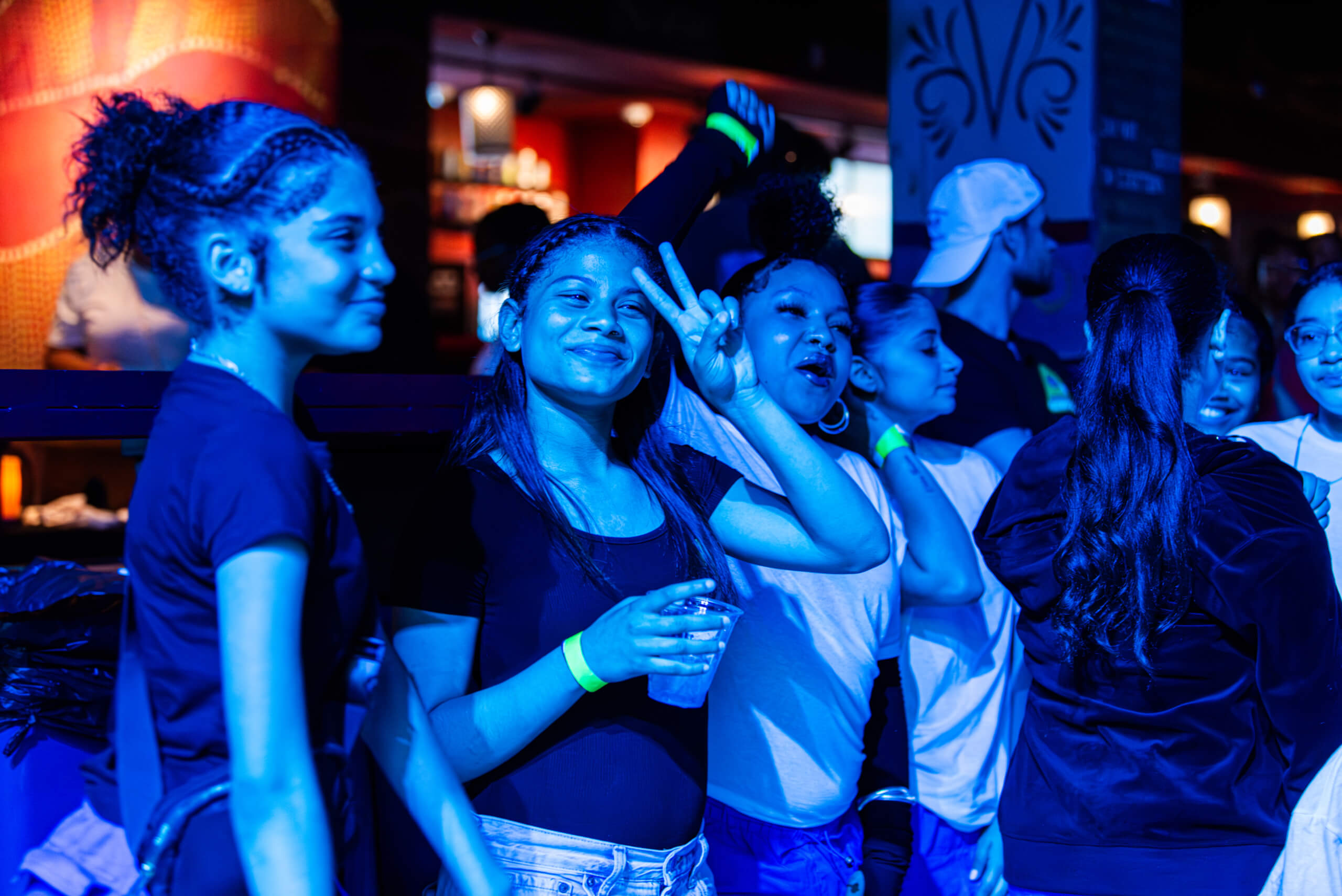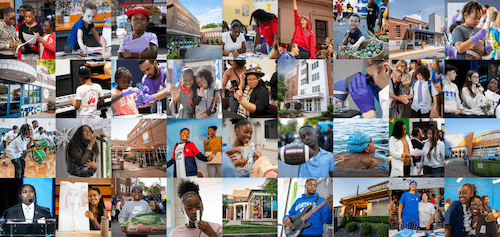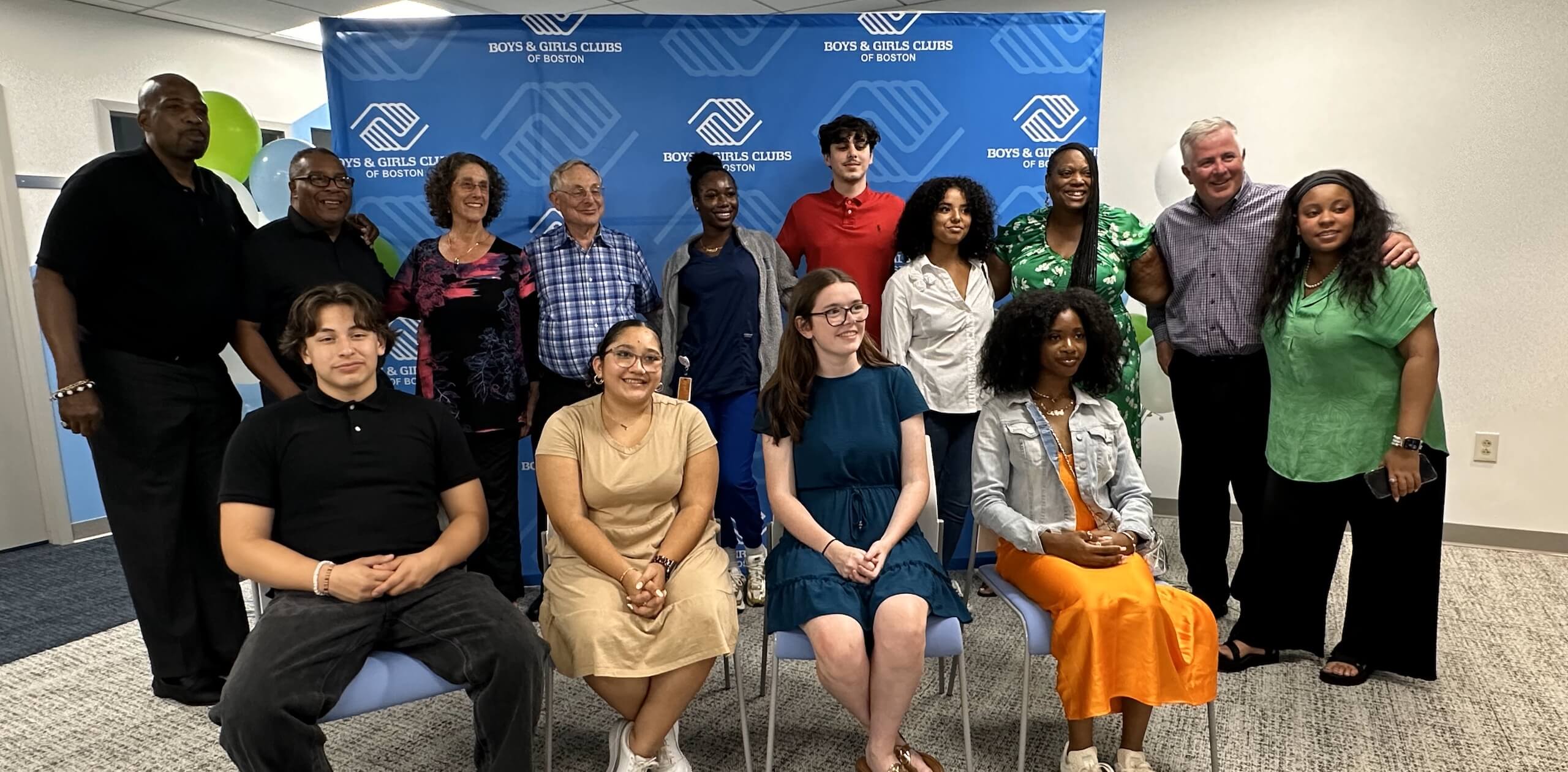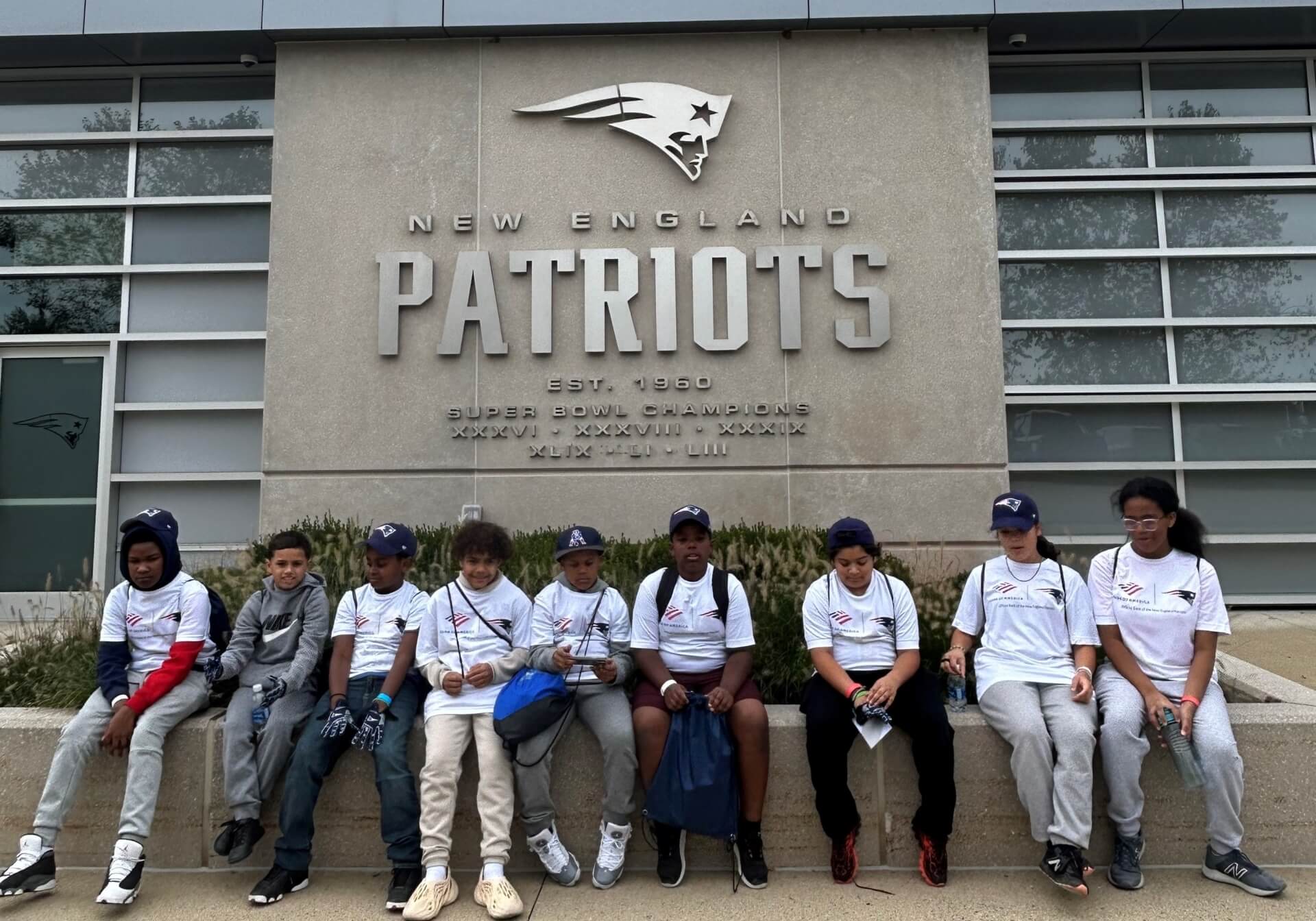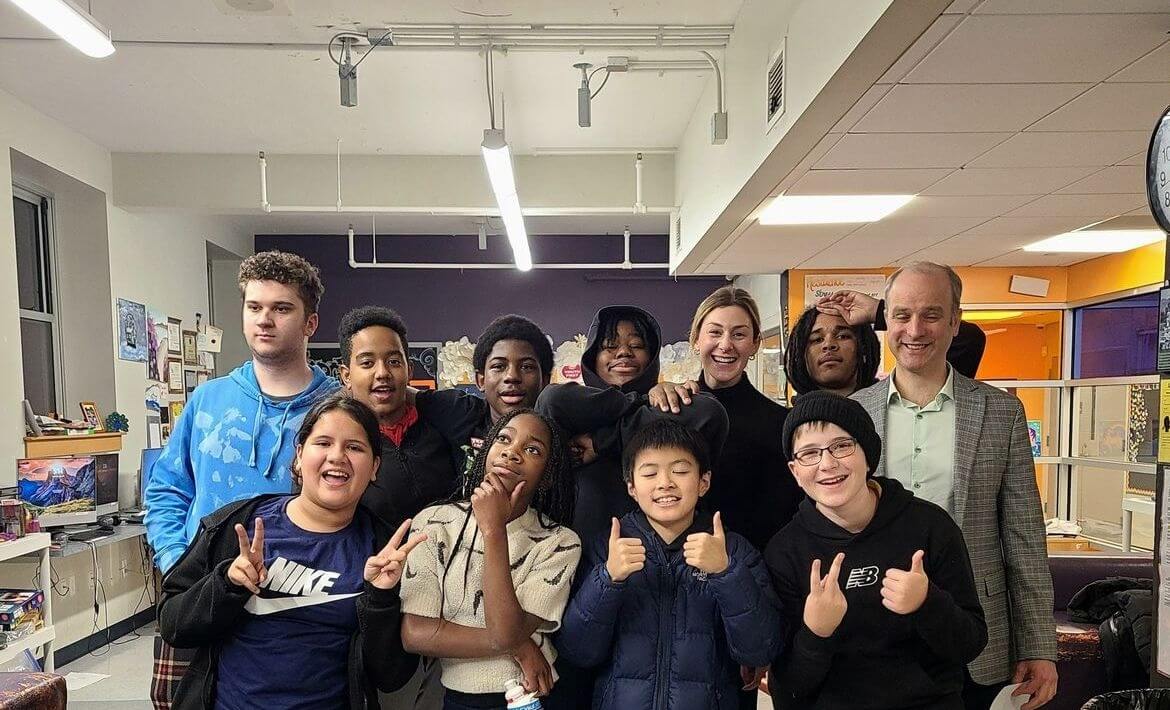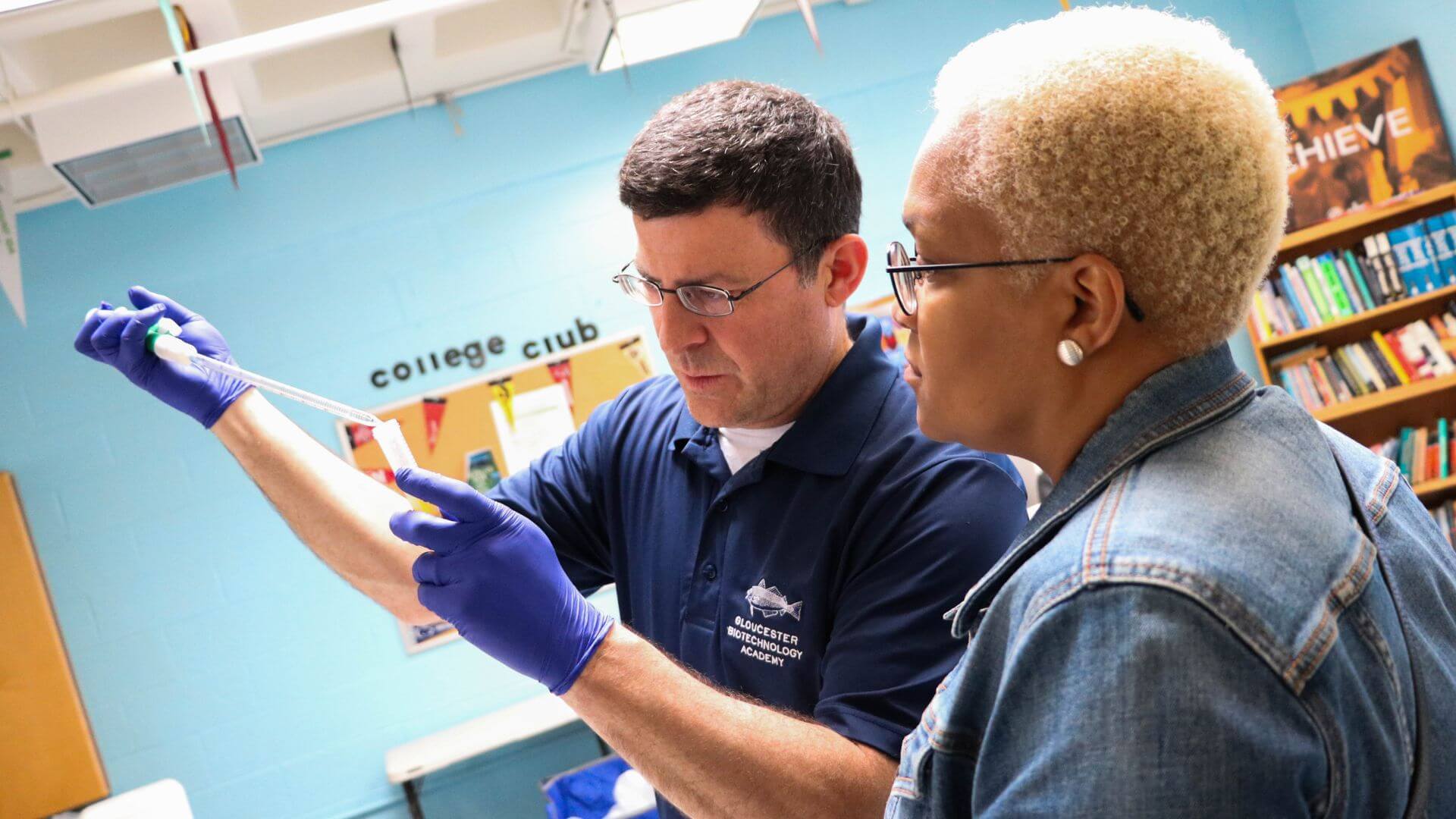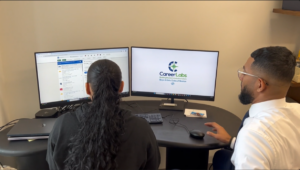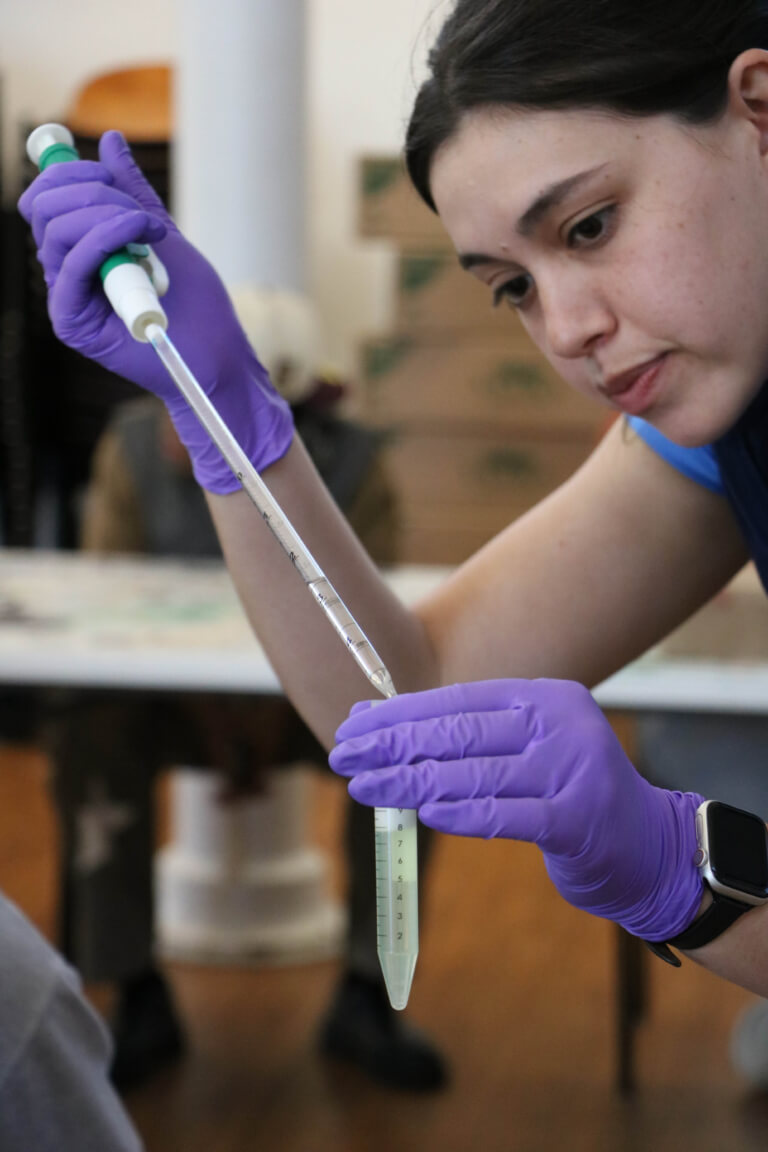
Boys & Girls Clubs of Boston (BGCB) is actively shaping Boston’s future workforce through strategic partnerships in STEM and life sciences, sectors poised for significant growth. With the life science industry in Massachusetts projected to expand by 42,000 jobs by 2032 (MassBio), our collaboration with the Gloucester Marine Genomics Institute (GMGI) is a key part of this effort.
This partnership enhances academic success and prepares young people for the workforce by providing them with the skills needed for the growing job market here in Boston.
Exploring the World of Biotechnology with GMGI
GMGI is a hub of innovation and education on the New England coast. This not-for-profit research and education hub is dedicated to unraveling the mysteries of marine genomics to address significant challenges facing our oceans, human health, and the environment.
Through its dual commitment to cutting-edge scientific research and dynamic educational programs, GMGI not only advances our understanding of the natural world but also empowers the next generation of scientists and thinkers.
A Week of Discovery With GMGI
This past week, during school break, young members of various Boys & Girls Clubs had the unique opportunity to dive into the world of biotechnology, thanks to GMGI’s Academy. Staff from GMGI’s Gloucester Biotechnology Academy—Dr. John Doyle, Kristen Lewis, and Sadie Salazar—visited clubs across Boston and Chelsea to engage students in hands-on scientific exploration and various experiments in cell biology.
From extracting and examining their own DNA to learning about influential figures in biotech like Rosalind Franklin and Dr. Kizzmekia Corbett, these sessions sparked curiosity and wonder among the young participants.
“I just love giving them a microscope and being able to look at things like their hair and cheek cells and see how quickly they get interested looking at things under the microscope. What makes me smile is how hard it is to get them off the microscopes” says Dr. John Doyle of Gloucester Biotechnology Academy.
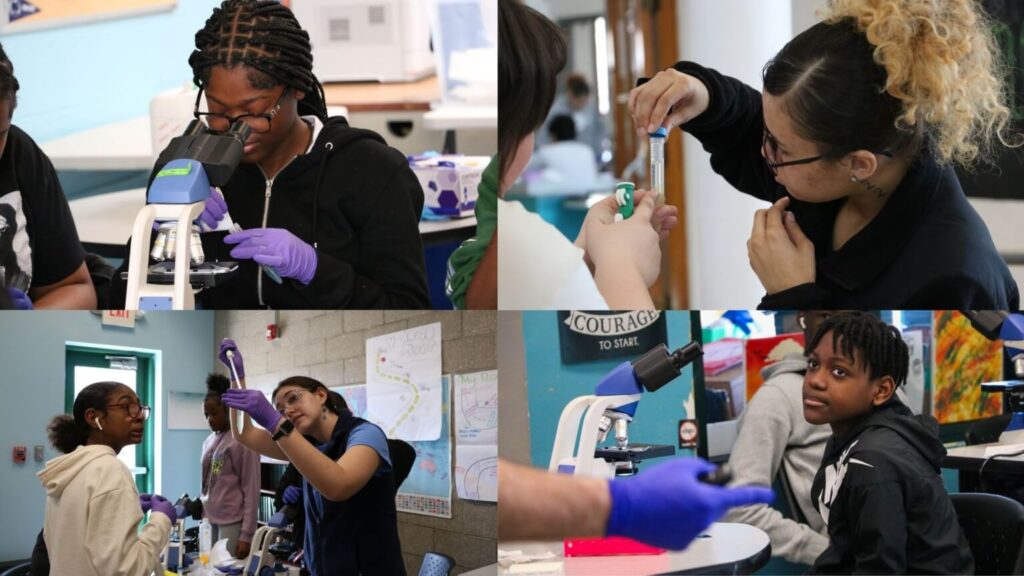
The Academy’s Role in Fostering Careers in Science
The Gloucester Biotechnology Academy, an integral part of GMGI, offers a transformative education model that combines rigorous academic instruction with real-world lab experience. Their biotechnology certificate program is akin to a trade school but is uniquely focused on the rapidly evolving field of biotechnology.
This program is especially beneficial for high school graduates, providing them with the knowledge and skills needed to secure well-paying jobs in the biotech sector, often starting with salaries ranging from $50,000 to $70,000. The certificate program is tuition free and even offers stipend pay to participants.
Enhancing STEM Education
The partnership between GMGI and the Boys & Girls Clubs of Boston (BGCB) extends into the summer with a special STEM session focused on marine biology and biotechnology. This weeklong initiative not only enriches the academic experience but also keeps the youth engaged and motivated through the summer, helping to prevent the educational slide often seen during this period.
“The thing that is most important is getting young people like fourth, fifth, and sixth graders because from our research we know that’s the age a lot of kids loose interest in science, especially young women. Giving them hands on experience to see that science is something that’s accessible, it’s something that can be really interesting if they’re allowed the chance to work on the equipment and see something that relates to them that’s why we have them look at their own cells and DNA.” Dr. John Doyle of Gloucester Biotechnology Academy states when talking about making sure kids stay interested in STEM.
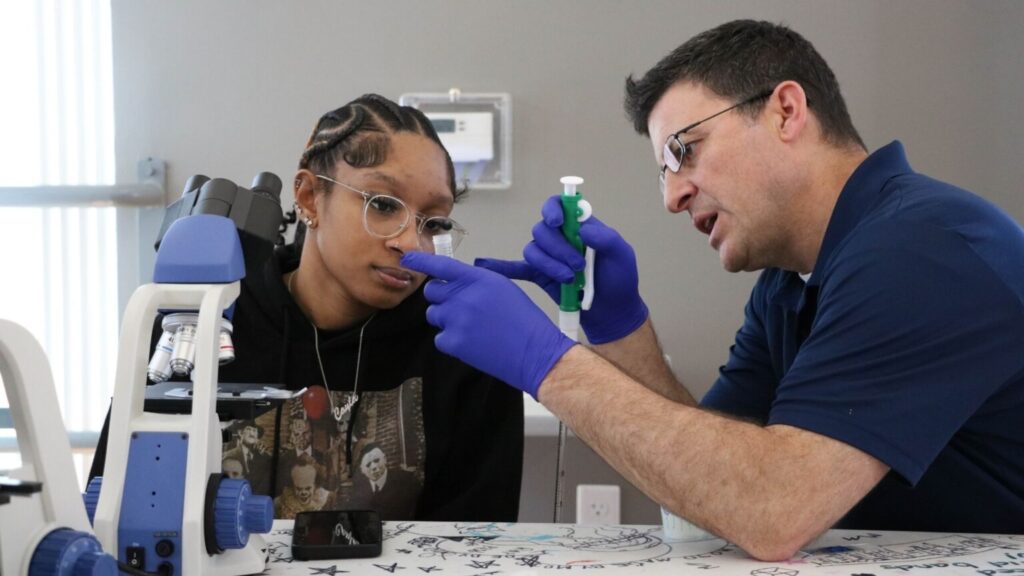
Real Impact on Club Members
The impact of GMGI’s programs on club members is profound. By providing access to high-quality scientific education and hands-on laboratory experience, these initiatives help demystify the field of science for young learners, making it more accessible and relatable. The excitement and engagement seen during the week’s activities underscore the effectiveness of bringing real-world science into community settings.
“GMGI has been a game changer for our young people. To have exposure to science lab work and actually do experiments with cell biology. I think it’s important for our young people to understand different career paths, especially in life science and healthcare. So, partnering with GMGI will really have an impact on our teenagers; they’ll have enough experience to make an informed choice about a career” Andrea Swain, Chief Impact Officer comments.
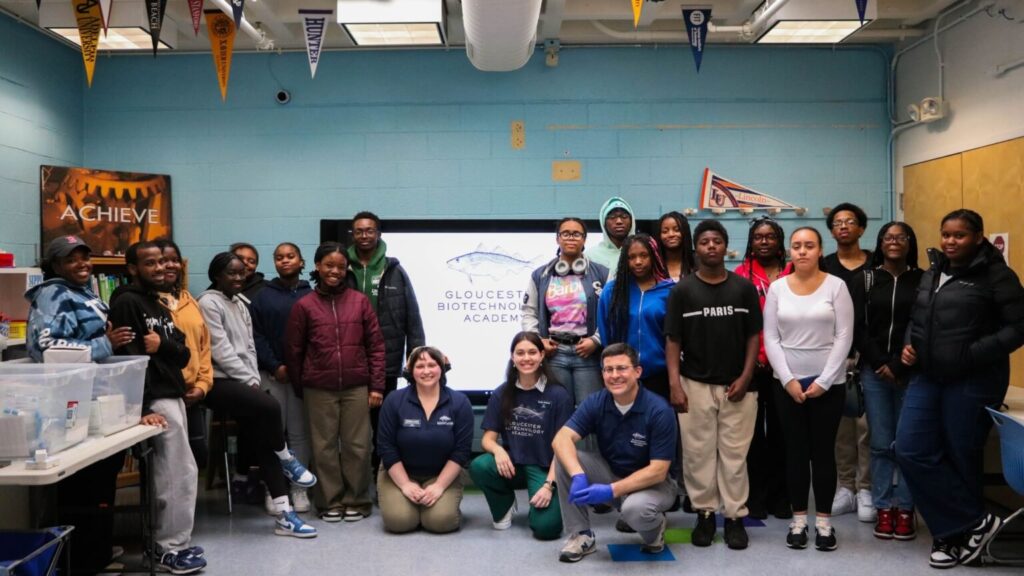
Bridging the Gap to Higher Education
For club members who are uncertain about the immediate pursuit of college education, GMGI also offers a practical alternative and is designed in a way to accommodate students from various backgrounds. Students can choose to take a gap year and join the Academy, allowing them to earn a certificate that not only enriches their knowledge but also enhances their employability in the biotechnology sector.
“For those who don’t want to go to college, this will allow them to go through a certification program after high school and they will come out making anywhere from $50k-$70k and they will come out with an expanded education. The training is basically at no cost to them so it’s a great path for our members” Andrea Swain, Chief Impact Officer explains.
Through these programs, GMGI continues to demonstrate its dedication to education, community service, and the advancement of marine biotechnology. By reaching out to the younger generation, we are not just teaching them about science; we are inspiring them to become the innovators and leaders of tomorrow.
